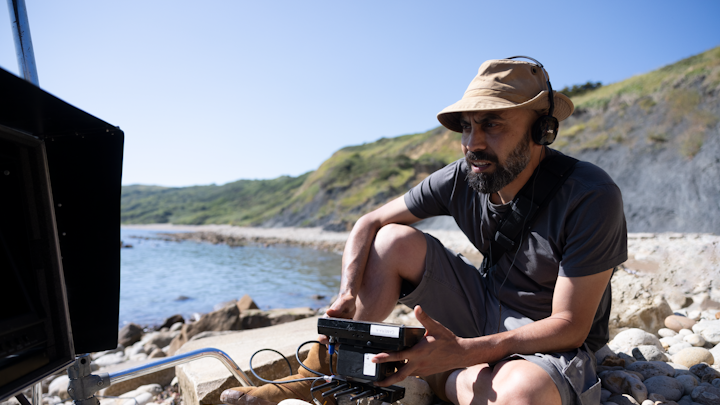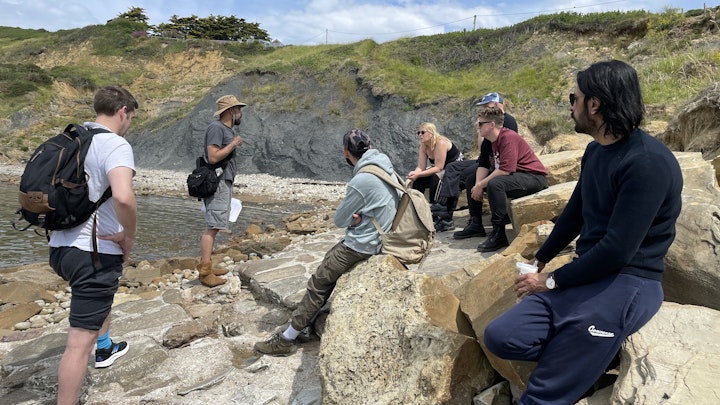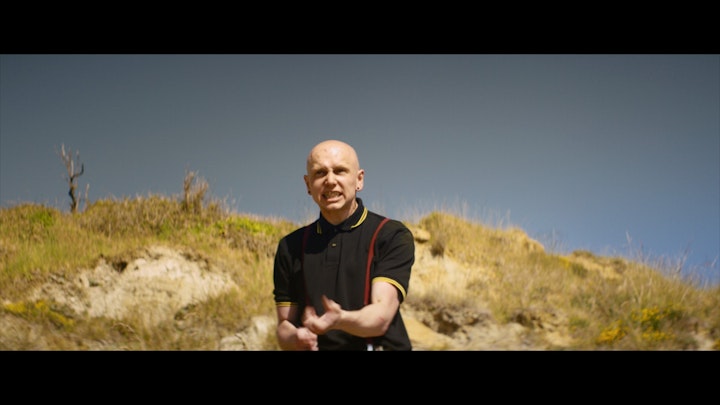Dinghy
Film Making
The film stars Laura Bay, AJ Jones, Jack Bradley, Iman Borono, Faheem Hussain & Paul Giblin. Produced by Kwok Yau with finance provided by 20th Digital Studios. The director of photography was Deane Thrussell with score composed by Benedict Edwards.
Dinghy: Navigating the Tides and Horrors of Marginalization
Within the myriad of identities I inhabit, (having an Indian father, a Spanish mother, and being born and raised in London, UK), I am acutely aware of the complexities surrounding difference and the tensions and dangers that often arise from it. In Dinghy, I sought to delve into these tensions, exploring themes of marginalization, systemic racism, and its impact on those who are subjected to it.
Dinghy began life as a short story about the journey of a young man called Merhan, who travelled to the UK to seek refuge, only to be met with terrors he could never have imagined. As it evolved into a short film, I wanted to find a way to give voice to my own complexities. I also wanted to give voice to countless others like me, who have often found themselves occupying a grey space between multiple identities, subject to the whims of those in power.
As such, Dinghy often touches on difficult topics, not shying from making its viewers uncomfortable and encouraging self-reflection. For me, the power of art lies in its ability to confront us with our own biases and expose us to unfamiliar perspectives, creating an environment where change, however small, can occur. I became aware through the filmmaking process that the story was in fact semi-autobiographical. I saw traces of my father echoed in the character of the smuggler, who left his home and culture to build a life in the UK. I saw traces of myself in the protagonist, Merhan, firstly being carried and protected by the smuggler, and then having to tussle with fate on his own.
The smuggler and Merhan embody the struggles of those who have travelled to the UK in search of a better existence. When they arrive ashore, the sight of the dead fellow passenger and Merhan's reaction to it, highlights the fear, desperation and danger faced by so many forced to flee their homeland in search of safety.
As the three working-class characters sit by the sea, their perplexing dialogue illustrates how fear and misinformation can be used to exploit those most vulnerable. Their words expose a deep societal ill wherein certain individuals are easily swayed into believing falsehoods that ultimately only serve to harden divisions among people.
Confronted with the unknown, humans will often react from a place of ignorance and confusion. 'I don't understand' was the phrase uttered by one of the men as he encountered Merhan and an unearthly monster, yet unseen to the audience. This scene serves to remind us of the complexity and multitude of layers that make up capitalism and systemic oppression. Facing up to these realities can be a colossal task.
Another theme I wanted to explore is the insidious ways in which toxic gender dynamics infiltrate society. In one scene, the woman vehemently urges her boyfriend to wrestle Merhan, whilst deriding him for his perceived inadequacy. Her words underscore how aggression and physical domination are often regarded as emblematic of traditional masculinity, celebrated for their potential to overpower the system through sheer physical force. Thus, a 'macho' attitude is not only encouraged but also glorified and rewarded by a patriarchal society. Physical means are seen as the only way to fight the system by those who do not have the understanding or means to do so in other ways.
In the final scenes, the monster is revealed as an intimidating man in a suit, controlling the woman like a puppet as she hunts down Merhan to exact her violence on him. The abomination, mindless, but powerful and imposing, speaks to the futility of power wielded without consciousness. Her act of aggression serves only to demonstrate how easily she has become a vessel for the system's oppressive ideologies. It's a signifier of how dangerous our society can be when we are not mindful of the power dynamics that exist within it. Merhan is subject to a cruel fate, and the woman does not realise that she too is a victim and pawn of the system. The haunting chant of ‘you are not enough’, backwards, which runs throughout the film, echoes like a mantra, the message of which is that the societal pressures to conform and achieve can drive individuals to become mere cogs in the machine, losing their sense of self in the process.
A dinghy is an object of both comfort and terror for its passengers, as it is used to navigate rough waters when they have no other choice. I utilized the horror genre as a means of examining complex and challenging themes in a manner that is both accessible and relatable to audiences. By fusing horror and social commentary, I aimed to create an immersive experience that encourages viewers to think more deeply about the state of our current world and the complexities inherent within it.
It was an emotional journey, blending various elements of my life and experiences of navigating life in the margins. Ultimately, my hope for Dinghy is that it encourages a more nuanced and conscious consideration of systemic oppression, particularly as it relates to racial identity and people of color.










